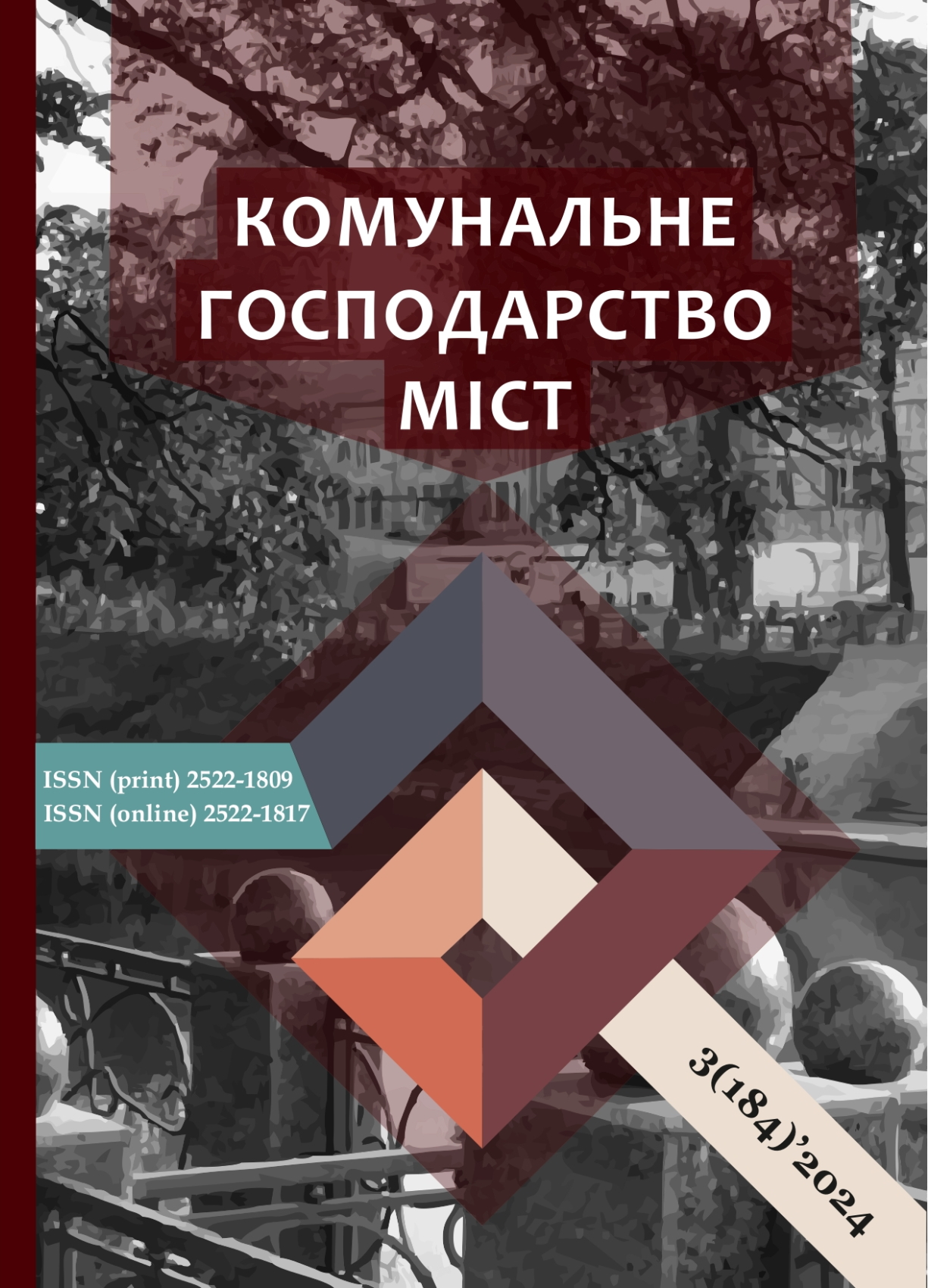USE OF ARTIFICIAL INTELLIGENCE IN EDUCATIONAL DESIGN FOR ARCHITECTURE STUDENTS
DOI:
https://doi.org/10.33042/2522-1809-2024-3-184-53-58Keywords:
architectural education, innovation, design, artificial intelligenceAbstract
One of the promising areas of artificial intelligence (AI) use is architectural design. Most of the world-renowned architectural bureaus are experimenting and exploring the use of AI in their daily work. It is necessary to integrate the ability to apply such tools wisely into the education process for architecture students to be competitive and participate in projects involving AI successfully. The growing interest in AI among students and modern architectural educational institutions and bureaus determines the relevance of this research.
The article discusses the specificity of the use of AI within the framework of architectural education, which involves providing students with access to resources and participation in international projects. AI makes it possible to develop creativity and promotes greater adaptability and openness of future architects to cooperate with professionals from different fields, promoting a holistic approach to design and problem-solving.
Incorporating AI concepts and technologies into architectural education equips future architects with the skills and knowledge they need to thrive professionally. Some of the main benefits and results of the approach include access to AI tools and resources, interdisciplinary cooperation, innovation and creativity, environmental responsibility, efficiency, and project management. There are several directions to successfully use AI in educational design, such as: search for ideas, organisation of text information, and visualisation.
Overall, AI’s impact on educational design for architectural students is quite significant. Integrating innovative technologies can improve the quality of education, provide students with new opportunities for developing creative and analytical skills, and prepare them for the challenges of modern architectural practice, with the consideration of ethical norms. This adoption also supports the development of sustainable design practices, as AI can analyse complex data to optimise the use of materials and energy in building projects. Further, AI-driven tools can help simulate and visualise environmental impact and sustainability, which is increasingly critical in modern architecture.
References
Report "All-Ukrainian study of the use of AI in school education". (2023).
Shevchenko A.I. (2023) Strategy for artificial intelligence development in Ukraine: monograph. Kyіv. p.72 https://doi.org/10.15407/development_strategy_2023
Basarir L. (2021) Modelling AI in Architectural Education DOI: 10.35378/gujs.967981
Sadek M., Nermine Abdel Gelil M. (2023). Artificial Intel-ligence as a pedagogical tool for architectural education: What does the empirical evidence tell us? DOI: 10.21608/MSAENG.2023.291867
Cudzik J., Nyka L., Szczepański J. (2024). Artificial intelligence in architectural education - green campus development research, vol. 26. Gdańsk, Poland
Cheung, L., Dall’Asta, J. (2023) Human-computer Interaction (HCI) Approach to Artificial Intelligence in Education (AIEd) in Architectural Design. pp. 109-131
Izbash A.M. (2023). Synopsis of lectures on the educational discipline "Innovative means of architectural visualization".
Carpo M., (2023). A short but believable history of the digital turn in architecture. 8 p.
Fankhänel T., Lepik A. (2020) Die Architekturmachine. Die Rolle des Computers in der Architektur
Al-Suwaidi, M. F., Agkathidis, A., Haidar, A., & Lombardi, D. (2023). Application of immersive technologies in the early design stage in architecture education - a systematic review. Architecture and Planning Journal, 28, Article 27.
Fomenko O. et al., (2020) The problem of formation of innovative directions in the profession “Architect”. IOP Conference Series: Materials Science and Engineering. Kharkiv, Ukraine.
Novoselchuk N.; Shevchenko L.; Mass E. (2023). Artificial intelligence in architecture and education: Potential, tendencies, perspectives У: Artificial intelligence: an era of new threats or opportunities? Praha: OKTAN PRINT, vol 260.
Ceylan S. (2021) Artificial Intelligence in Architecture: An Educational Perspective. DOI: 10.5220/0010444501000107
UNESCO (2023). Guidance for generative AI in education and research. p.18. (p. 125-136) https://doi.org/10.46489/aiaeont-23-23
Huang, Jiahui et al., (2021). A Review on Artificial Intelligence in Education. p. 207-210.
Nihal A. Amer (2023). Architectural Design in The Light of AI Concepts and Applications DOI: 10.21608/MSAENG.2023.291906
Downloads
Published
How to Cite
Issue
Section
License
The authors who publish in this collection agree with the following terms:
• The authors reserve the right to authorship of their work and give the magazine the right to first publish this work under the terms of license CC BY-NC-ND 4.0 (with the Designation of Authorship - Non-Commercial - Without Derivatives 4.0 International), which allows others to freely distribute the published work with a mandatory reference to the authors of the original work and the first publication of the work in this magazine.
• Authors have the right to make independent extra-exclusive work agreements in the form in which they were published by this magazine (for example, posting work in an electronic repository of an institution or publishing as part of a monograph), provided that the link to the first publication of the work in this journal is maintained. .
• Journal policy allows and encourages the publication of manuscripts on the Internet (for example, in institutions' repositories or on personal websites), both before the publication of this manuscript and during its editorial work, as it contributes to the emergence of productive scientific discussion and positively affects the efficiency and dynamics of the citation of the published work (see The Effect of Open Access).

